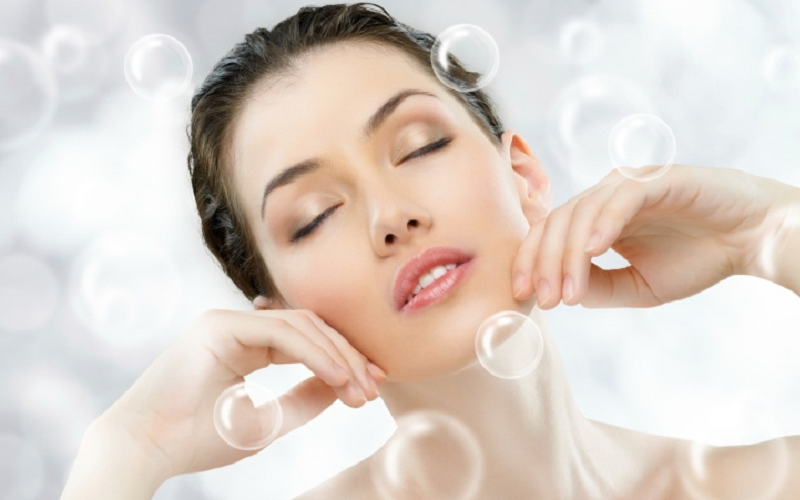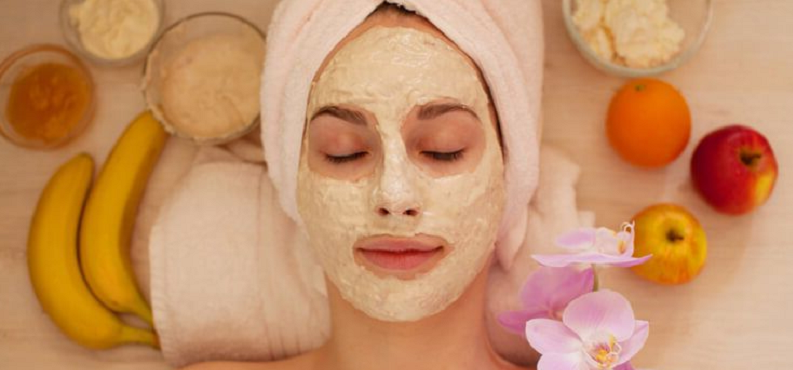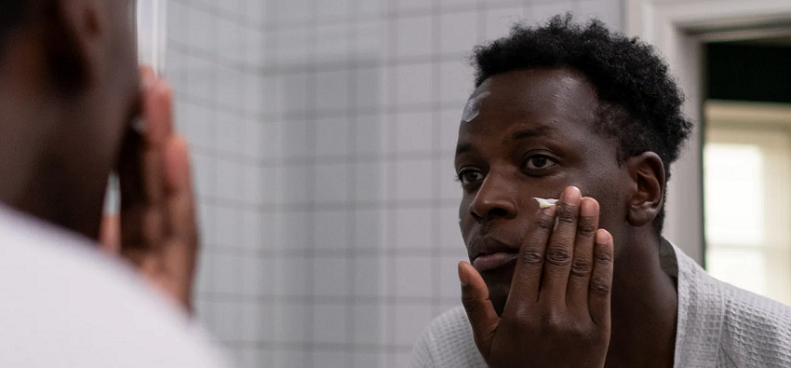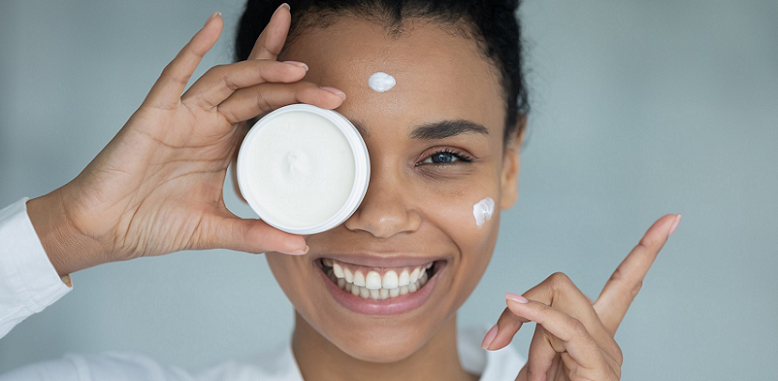
With countless skincare products and advice available, it’s easy to get overwhelmed and confused. Misinformation can lead to poor skincare choices. Our goal is to debunk common skincare myths and provide you with accurate, research-backed information.
Contents
- About Skincare Myths
- Common Skincare Myths Debunked
- Skincare Myths Based on Skin Type
- Skincare Myths Surrounding Ingredients
- Skincare Myths Related to Age and Gender
- References
About Skincare Myths
The quest for healthy, radiant skin has led to the creation of an ever-growing skincare industry, filled with a plethora of products and advice. But with so much information out there, it’s no surprise that some myths and misconceptions have made their way into our collective consciousness. In a world where everyone’s an expert, how can you separate fact from fiction?
In this post we debunk common skincare myths and provide you with accurate, research-backed information. We tackle myths related to skincare ingredients, skin types, age, gender, and more. By understanding the truth behind these misconceptions, you can make better-informed decisions about your skincare routine and achieve the healthy, glowing skin you desire.
Importance of Skincare
Skincare is not just about looking good; it plays a crucial role in maintaining the health and integrity of your skin. Your skin is your body’s largest organ, and it acts as a barrier to protect you from harmful external elements, such as bacteria, pollutants, and UV rays. A well-formulated skincare routine can help maintain this barrier function, prevent premature aging, and address various skin concerns, such as acne, dryness, or hyperpigmentation.
Prevalence of Skincare Myths
Skincare myths are prevalent due to various factors, such as marketing tactics, a lack of scientific understanding, or even cultural beliefs. Unfortunately, these myths can lead to improper skincare practices and suboptimal results, or even exacerbate existing skin issues. To achieve your best skin possible, it’s essential to educate yourself and separate fact from fiction.
Common Skincare Myths Debunked
In this section, we will address some of the most prevalent skincare myths that have circulated through the years. By debunking these misconceptions, we hope to help you make more informed decisions about your skincare routine and avoid potential pitfalls.
Myth 1: All-Natural Products Are Always Better
The allure of all-natural skincare products is understandable, as many people equate “natural” with “safe” and “healthy.” However, this belief can be misleading and may lead to less effective or even harmful skincare practices.
Definition of “Natural” in Skincare
The term “natural” in skincare products can be quite ambiguous, as there is no strict regulation defining it. Consequently, a product labeled “natural” may still contain synthetic or processed ingredients. It’s essential to read the ingredient list carefully to truly understand what you are applying to your skin.
Risks Associated with Natural Ingredients
Natural ingredients, just like synthetic ones, can cause irritation, allergic reactions, or sensitivities. Furthermore, some natural ingredients can be harmful when used in high concentrations or without proper formulation. For example, essential oils, often found in natural skincare products, can cause skin irritation or photosensitivity if not appropriately diluted [1].
Benefits of Synthetic Ingredients
Synthetic ingredients are not inherently bad for your skin. In fact, many synthetic ingredients have been carefully designed and tested for safety, efficacy, and stability. Some synthetic ingredients, such as hyaluronic acid or niacinamide, can provide significant benefits to your skin without causing irritation or harm.
The key takeaway is to choose skincare products based on their ingredients’ safety and efficacy, rather than solely focusing on whether they are natural or synthetic.

Myth 2: You Don’t Need Sunscreen on Cloudy Days
This common myth can lead to inadequate sun protection and increased risk of skin damage, even on seemingly overcast days.
UVA and UVB Rays
The sun emits two types of ultraviolet (UV) rays that can harm your skin: UVA and UVB. While UVB rays are responsible for sunburns, UVA rays penetrate deeper into the skin, causing premature aging and increasing the risk of skin cancer. Both UVA and UVB rays can damage your skin, regardless of cloud coverage [2].
Cumulative Sun Damage
Sun damage is cumulative, meaning that even small amounts of exposure over time can lead to significant skin issues, such as wrinkles, age spots, and an increased risk of skin cancer. Applying sunscreen every day, regardless of the weather, is crucial to protect your skin from these harmful rays.
The Importance of Daily Sunscreen
To ensure adequate sun protection, apply a broad-spectrum sunscreen with an SPF of at least 30 every day, even on cloudy or rainy days. This will help shield your skin from both UVA and UVB rays, preventing premature aging and reducing your risk of skin cancer.
Myth 3: Acne Is Caused by Poor Hygiene
The belief that acne is solely caused by poor hygiene can lead to overly aggressive cleansing routines and worsen existing breakouts.
The True Causes of Acne
Acne is a complex skin condition caused by various factors, such as hormonal fluctuations, excess sebum production, inflammation, and the presence of acne-causing bacteria (Propionibacterium acnes). While maintaining good hygiene can help prevent breakouts, it’s not the sole cause of acne [3].
The Role of Hygiene in Skincare
Over-cleansing your skin or using harsh products can strip your skin of its natural oils, leading to increased sebum production and worsening acne. Instead, use a gentle cleanser and practice proper skincare hygiene, such as changing your pillowcase regularly and avoiding touching your face with dirty hands.
Proper Acne Treatment
To effectively treat acne, it’s crucial to understand the root causes and address them accordingly. For mild to moderate acne, consider using over-the-counter treatments containing salicylic acid, benzoyl peroxide, or alpha-hydroxy acids. For more severe or persistent acne, consulting a dermatologist is recommended. They may prescribe stronger treatments, such as retinoids, antibiotics, or hormonal therapies.
Skincare Myths Based on Skin Type
Understanding your skin type is crucial to choosing the right products and creating an effective skincare routine. However, several myths related to specific skin types persist, leading to confusion and misguided skincare practices. In this section, we will debunk common skin type myths to help you better care for your unique skin.
Myth 1: Oily Skin Doesn’t Need Moisturizer
Many people with oily skin believe that using a moisturizer will only exacerbate oil production and cause breakouts. This misconception can lead to dehydrated skin and even worsen oiliness.
The Role of Moisturizer
Moisturizers are designed to lock in hydration, keeping your skin soft, supple, and healthy. All skin types, including oily skin, need hydration to maintain the skin’s natural barrier and prevent water loss.
Why Oily Skin Needs Hydration
When your skin lacks hydration, it can overcompensate by producing more oil, resulting in even oilier skin. By using a moisturizer, you provide your skin with the hydration it needs, which can help balance sebum production and reduce excess oiliness over time.
Choosing the Right Moisturizer for Oily Skin
The key to moisturizing oily skin is to choose a lightweight, non-comedogenic formula that won’t clog pores or feel greasy. Look for gel or water-based moisturizers that contain ingredients like hyaluronic acid or glycerin, which provide hydration without adding oiliness.

Myth 2: Sensitive Skin Cannot Tolerate Exfoliation
While it’s true that sensitive skin may be more prone to irritation from exfoliation, avoiding it altogether is not the solution. Instead, it’s essential to find a gentle exfoliation method that works for your skin.
The Importance of Exfoliation
Exfoliation is a crucial step in any skincare routine, as it helps remove dead skin cells, unclog pores, and promote skin cell turnover. This process can result in a brighter, smoother complexion and better absorption of skincare products.
Gentle Exfoliation for Sensitive Skin
For sensitive skin, it’s essential to choose a gentle exfoliation method that won’t cause irritation. Physical exfoliants, such as scrubs, can be too harsh for sensitive skin. Instead, opt for chemical exfoliants like alpha-hydroxy acids (AHAs) or beta-hydroxy acids (BHAs) in lower concentrations [4].
Tips for Exfoliating Sensitive Skin Safely
To safely exfoliate sensitive skin, start by using a gentle chemical exfoliant once or twice a week. Pay attention to how your skin reacts, and adjust the frequency accordingly. If you experience irritation or redness, reduce the frequency or switch to an even gentler exfoliant. Always follow up with a soothing moisturizer to replenish hydration and protect the skin barrier.
Skincare Myths Surrounding Ingredients
Skincare ingredients play a crucial role in the efficacy and safety of the products we use. Unfortunately, misconceptions about certain ingredients can lead to fear, confusion, and suboptimal skincare choices. In this section, we will debunk myths surrounding specific skincare ingredients, helping you make informed decisions about your skincare routine.
Myth 1: Parabens Are Harmful to Your Skin
Parabens have gained a negative reputation in recent years, with many consumers avoiding them in fear of potential health risks. However, this fear may be unwarranted, as research has yet to prove a direct link between paraben use and adverse health effects.
The Role of Parabens
Parabens are a class of synthetic preservatives used in cosmetics and personal care products to prevent the growth of bacteria, mold, and yeast. They help maintain product safety and extend shelf life, ensuring the products we use remain free of harmful contaminants.
Research on Paraben Safety
Several studies have raised concerns about the potential effects of parabens on hormone function and breast cancer risk. However, these studies have not provided conclusive evidence, and many experts and regulatory bodies, such as the FDA and the European Commission, consider parabens to be safe when used in low concentrations [5].
Alternatives to Paraben-Containing Products
If you still prefer to avoid parabens, there are plenty of alternative preservatives and paraben-free products available. Look for products containing other preservatives, such as phenoxyethanol, sodium benzoate, or potassium sorbate. However, keep in mind that these alternatives may also have their own risks and limitations.

Myth 2: Retinol Thins the Skin
Retinol, a form of vitamin A, is a popular anti-aging ingredient known for its ability to reduce wrinkles, improve skin texture, and promote collagen production. However, some people believe that retinol thins the skin, leading to increased sensitivity and damage. This misconception can prevent individuals from benefiting from this potent ingredient.
The Benefits of Retinol
Retinol is a well-researched ingredient with proven benefits for aging and acne-prone skin. It works by increasing skin cell turnover, promoting collagen production, and reducing hyperpigmentation. This results in smoother, firmer, and more even-toned skin over time.
Misconceptions About Retinol
The belief that retinol thins the skin is based on the initial exfoliation and skin cell turnover that occurs when using retinol. This process may cause temporary redness, dryness, or peeling, leading some to believe that their skin is becoming thinner. However, retinol actually thickens the deeper layers of the skin by promoting collagen production, which improves the skin’s overall structure and resilience.
How to Use Retinol Safely
To safely incorporate retinol into your skincare routine, start with a low concentration (0.25% to 0.5%) and gradually increase as your skin tolerates it. Apply retinol at night, as it can increase sun sensitivity, and always use a broad-spectrum sunscreen during the day. If you experience irritation or discomfort, reduce the frequency of use or consider using a lower concentration. Additionally, consult a dermatologist for personalized advice and guidance.
Skincare Myths Related to Age and Gender
Our age and gender can influence our skin’s needs, but they can also give rise to various skincare myths. These misconceptions can lead to suboptimal skincare routines and prevent us from achieving our best skin possible. In this section, we will debunk age and gender-related skincare myths to help you create a skincare routine that works for you, regardless of your age or gender.
Myth 1: You Don’t Need to Worry About Skincare Until You’re Older
Many people believe that skincare, particularly anti-aging products, isn’t necessary until they start seeing signs of aging. However, this belief can lead to missed opportunities for preventative care and result in more difficult-to-reverse skin issues later in life.
The Importance of Preventative Skincare
Starting a skincare routine early in life can help prevent premature aging and maintain the skin’s overall health. By using sunscreen daily, keeping your skin moisturized, and incorporating antioxidant-rich products, you can help delay the onset of wrinkles, fine lines, and age spots.
Building a Skincare Routine at Any Age
It’s never too early or too late to start a skincare routine tailored to your unique needs. In your younger years, focus on prevention by using sunscreen, gentle cleansers, and lightweight moisturizers. As you age, consider adding targeted treatments, such as retinol, vitamin C, or peptides, to address specific concerns like fine lines, wrinkles, or loss of firmness [6].
Myth 2: Men and Women Require Completely Different Skincare Products
The belief that men and women need entirely different skincare products can lead to confusion and unnecessary purchases. While there may be some differences in skin structure and concerns between genders, the fundamental principles of skincare remain the same.
Similarities in Skincare Needs
Both men and women need to cleanse, moisturize, exfoliate, and protect their skin from sun damage. These fundamental steps should be part of everyone’s skincare routine, regardless of gender. High-quality skincare products containing effective ingredients can benefit both men and women.
Differences in Skin Structure and Concerns
There are some differences between men’s and women’s skin, such as men’s skin typically being thicker and oilier. Men may also have specific concerns like razor burn or ingrown hairs due to shaving. However, these differences can be addressed by choosing products tailored to your individual skin type and concerns, rather than relying on gender-specific marketing.
Choosing Skincare Products Based on Your Needs
Rather than focusing on gender-specific products, select skincare items based on your skin type, concerns, and personal preferences. This approach will ensure that you’re using products that are truly suited to your unique skin, leading to better results and overall skin health.
References
[1] Don’t be Duped by These 5 Skincare Myths
[2] 11 Skincare Myths You Should Stop Believing, According To Dermatologists
[3] Don’t fall for these skin myths
[4] A dermatologist and a cosmetic chemist debunk 19 skin-care myths
[5] 5 Skin Myths That Need to Be Cleared Up, According to Dermatologists
[6] 13 skincare myths debunked by a dermatologist







